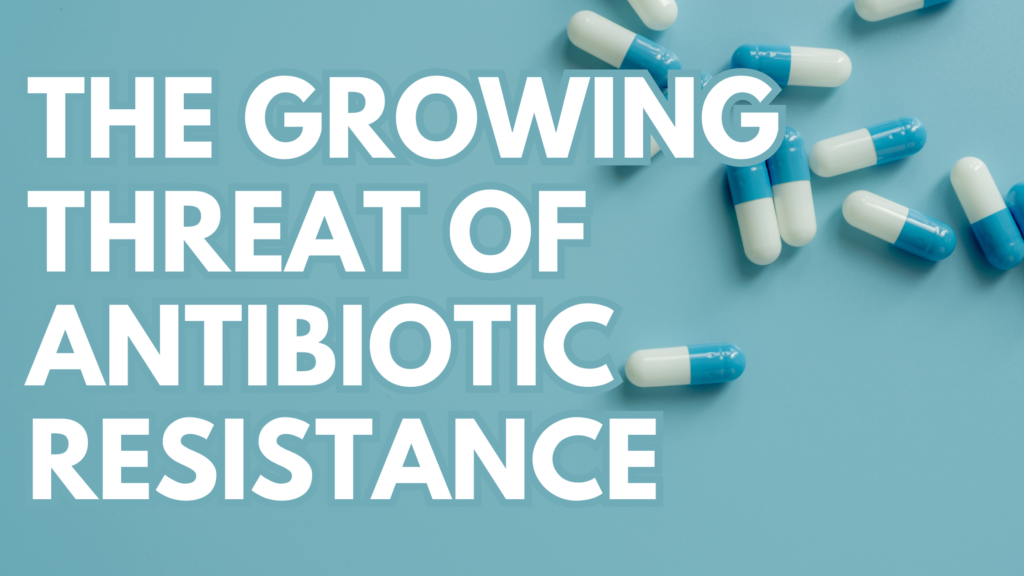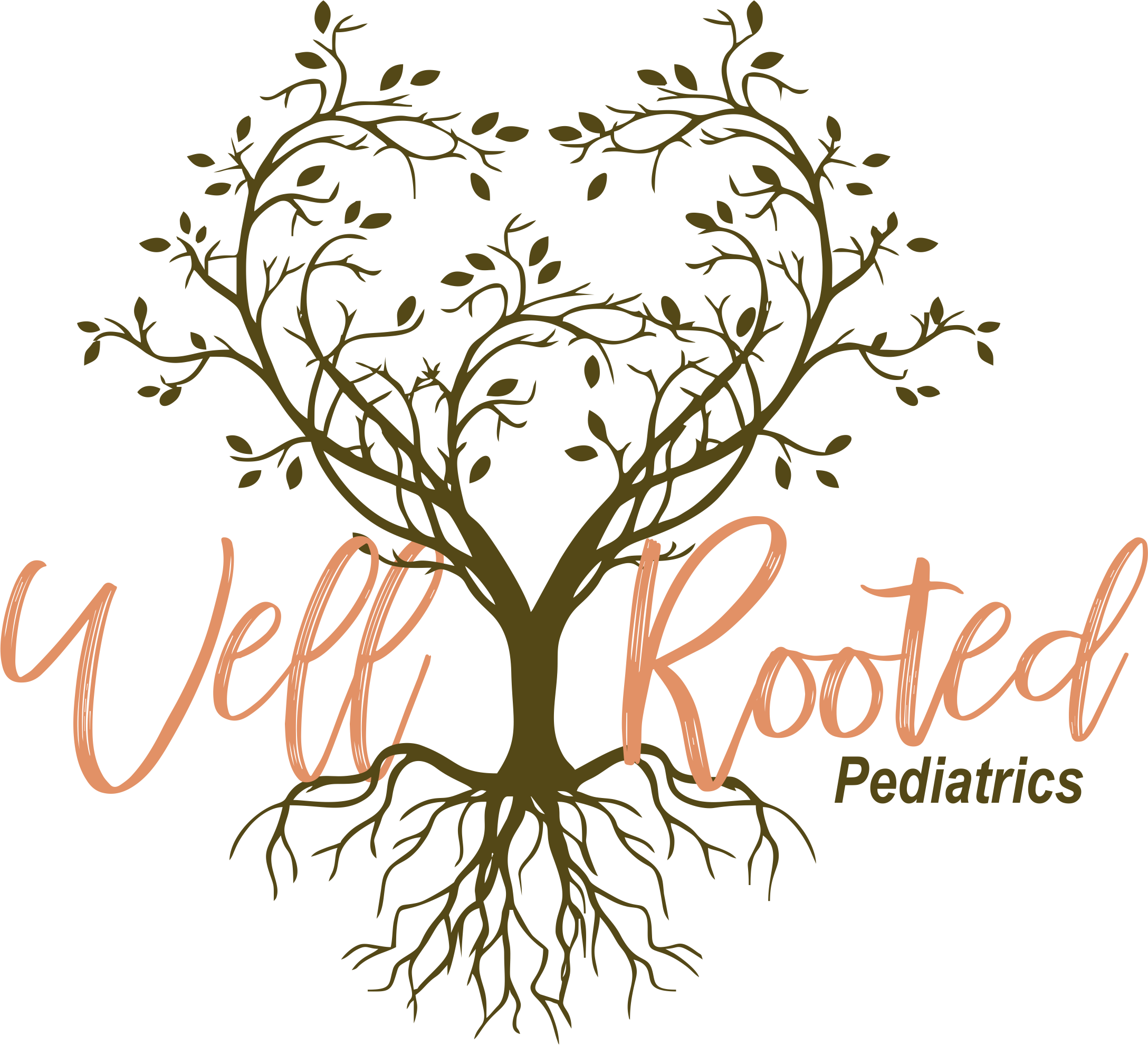The Growing Threat of Antibiotic Resistance

The Growing Threat of Antibiotic Resistance: How We Can All Play a Role in Stewardship
Antibiotics have revolutionized modern medicine, allowing us to treat bacterial infections that were once life-threatening. However, the misuse and overuse of antibiotics have given rise to a global health crisis: antibiotic resistance. This means that many bacteria are evolving to withstand the very treatments designed to eliminate them, making once-treatable infections harder to cure. 🌍💊
The Centers for Disease Control and Prevention (CDC) estimates that one-third of antibiotic use in people isn’t necessary or appropriate, which contributes to the spread of resistant bacteria. 🌿 But the good news? We all have a role to play in antibiotic stewardship, and by making small, mindful choices, we can help combat this issue together.
What is Antibiotic Resistance?
Antibiotic resistance happens when bacteria change in response to the use of these medicines. Over time, these resistant bacteria are no longer killed by the antibiotics that used to work, making infections harder to treat. This can lead to longer illnesses, more doctor visits, more expensive treatments, and, in extreme cases, death.
In fact, more than 2.8 million infections from antibiotic-resistant bacteria occur in the United States each year, leading to 35,000 deaths. 😔🦠
Why Are Antibiotics Overused?
Despite widespread knowledge about antibiotic resistance, antibiotics are still often overused or misused. Here’s why:
1. Misunderstanding their use: Many people mistakenly believe antibiotics can treat viral infections like the common cold, the flu, or COVID-19. 🦠 But antibiotics only work against bacterial infections, not viruses.
2. Patient pressure: Sometimes, patients or parents feel that antibiotics are a quick fix and may push healthcare providers to prescribe them even when they aren’t necessary. Unfortunately, giving in to this pressure can contribute to antibiotic misuse.
3. Incomplete courses: When people don’t complete their full course of prescribed antibiotics, it gives bacteria a chance to survive and develop resistance.
4. Sharing or reusing antibiotics: It’s common for some people to save leftover antibiotics or share them with family members. However, this can lead to misuse and increase the risk of antibiotic resistance.
Antibiotics vs. Viral Infections: Know the Difference
It’s crucial to understand that antibiotics won’t help treat viral infections. Here’s a list of common viral infections that do not require antibiotics:
– 🔸Common cold or runny nose
– 🔸Flu (influenza)
– 🔸Bronchitis
– 🔸Most coughs
– 🔸Most ear and sinus infections
– 🔸Stomach flu (Norovirus)
– 🔸COVID-19
Taking antibiotics for a viral infection won’t:
– ❌ Cure the infection
– ❌ Prevent others from getting sick
– ❌ Make you or your child feel better
In fact, taking antibiotics when they’re not needed can have harmful side effects, like allergic reactions, diarrhea, or yeast infections, and it can promote the growth of antibiotic-resistant bacteria. 😱
How Can We Practice Antibiotic Stewardship?
The responsibility for preventing antibiotic resistance falls on all of us—healthcare providers, patients, parents, and even consumers. Here are some important ways we can all help:
1. Avoid Pressuring Your Healthcare Provider
It can be frustrating when you or your child are sick and you want a quick solution. But it’s important to trust your healthcare provider’s guidance. If your provider says antibiotics aren’t needed, they are working to protect both your health and public health by preventing unnecessary antibiotic use. 🌿
2. Practice Good Hygiene
Simple hygiene practices go a long way in preventing infections. Wash your hands regularly, especially after using the bathroom, before eating, and after handling food. Clean cuts and scrapes thoroughly to avoid infections that may require antibiotics. 🧼
3. Handle Food Safely
Improper food handling can lead to bacterial infections, some of which may become resistant to antibiotics. Practice food safety by washing fruits and vegetables, cooking meats to the proper temperature, and avoiding cross-contamination between raw and cooked foods. 🍗🥒
4. Only Use Antibiotics as Prescribed
When antibiotics are necessary, make sure to **take them exactly as prescribed**. Complete the full course, even if you start to feel better. Don’t save leftovers, and never share your antibiotics with others. 💊
5. Use Antibiotics Responsibly in Agriculture
Antibiotics are often overused in agriculture, which can contribute to resistant bacteria entering the food chain. Look for organic or antibiotic-free labels when buying meat, dairy, and poultry products to support responsible farming practices. 🐔🌾
Antibiotic Resistance in Children: Why It Matters
Children are often more vulnerable to infections because their immune systems are still developing. This means they are more likely to be prescribed antibiotics, sometimes unnecessarily. As parents, we must ensure that we’re using antibiotics only when truly needed to protect our children from both immediate side effects and the long-term threat of resistance.
Children can develop resistant infections more quickly, especially after repeated courses of antibiotics. Ear infections, for example, are one of the most common reasons children are prescribed antibiotics, but not all ear infections require them. It’s important to monitor symptoms and work with your provider to determine the best course of action.
The Role of Functional Medicine in Antibiotic Stewardship
Functional medicine emphasizes preventative care and finding the root cause of illnesses rather than relying on quick fixes like antibiotics. At Well-Rooted, we focus on strengthening the body’s natural defenses through nutrition, lifestyle changes, and holistic treatments. By addressing the underlying issues that contribute to illness, we can often prevent the need for antibiotics in the first place.
In cases where antibiotics are needed, we ensure their use is thoughtful and strategic, considering the patient’s overall health and long-term wellness. 🌿
The Takeaway: Antibiotic Stewardship is a Shared Responsibility
We all have a role to play in preventing antibiotic resistance and ensuring that these life-saving medicines remain effective for future generations. By being mindful about when and how we use antibiotics, practicing good hygiene, and supporting holistic health, we can protect our families and communities from the growing threat of antibiotic-resistant bacteria. 💪
Let’s work together to promote a healthier, more resilient future! 🌱
—
Key Takeaways:
✅ Avoid unnecessary antibiotic use
✅ Only take antibiotics as prescribed
✅ Practice good hygiene and food safety
✅ Trust your healthcare provider’s advice
At Well-Rooted, we’re here to guide you through every step of your health journey. Whether it’s understanding when antibiotics are needed or exploring alternative treatments, we’re dedicated to promoting long-term health and wellness for you and your family. 💚
OUR LOCATIONS
Crystal Lake, IL
390 Congress Parkway Suite J, Crystal Lake, IL
Oak Brook, IL
814 Commerce Drive Ste 150 Oak Brook, IL 60523
HOURS OF OPERATION
Crystal Lake, IL
| Monday | 9am to 5pm |
| Tuesday | 9am to 5pm |
| Wednesday | 9am to 5pm |
| Thursday | 9am to 5pm |
| Friday | 9am to 5pm |
| Saturday | 1st, 2nd & 3rd Saturday Of The Month |
Oak Brook, IL
| Monday | 9am to 5pm |
| Tuesday | 9am to 5pm |
| Wednesday | 9am to 5pm |
| Thursday | 9am to 5pm |
| Friday | 9am to 5pm |
| Saturday | Closed |
Crystal Lake Office
390 Congress Parkway Suite J
Crystal Lake, IL
Phone 815-322-9300
Fax 815-322-9315
Email [email protected]
Oak Brook Office
814 Commerce Drive Ste 150
Oak Brook, IL 60523
Phone 815-322-9300
Fax 815-322-9315
Email [email protected]
Office Hours
Monday: 9am to 5pm
Tuesday: 9am to 5pm
Wednesday: 9am to 5pm
Thursday: 9am to 5pm
Friday: Varies By Location
Saturday: Varies By Location

